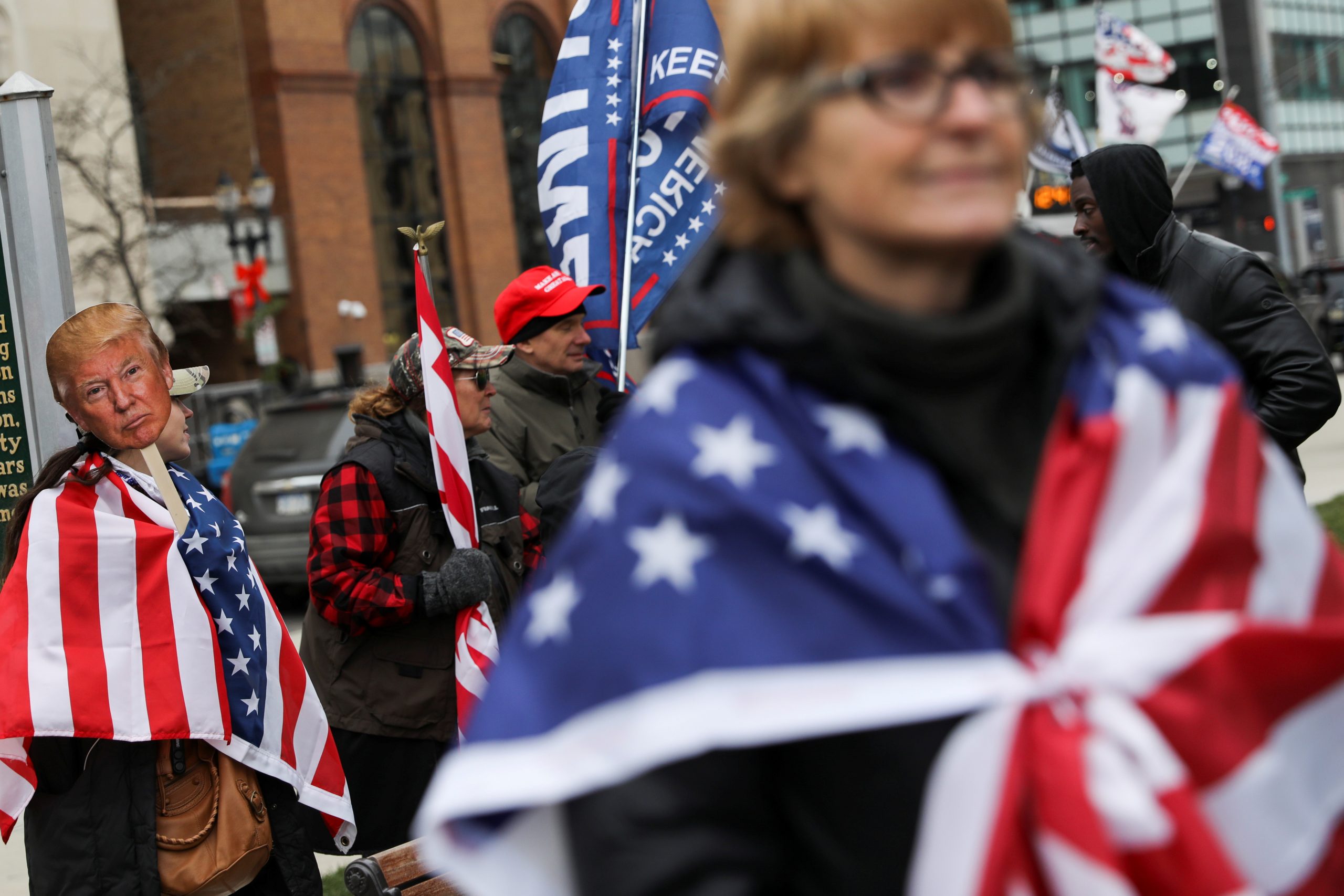Four U.S. states that President Donald Trump lost in the Nov. 3 election are due on Thursday to file their opposition to a long-shot Republican-backed lawsuit filed by Texas at the Supreme Court seeking to undo President-elect Joe Biden’s victory.
Officials from Georgia, Michigan, Pennsylvania and Wisconsin already have called the lawsuit, which aims to throw out the voting results in the four states, a reckless attack on democracy. The Supreme Court gave the four states a 3 p.m. EST (2000 GMT) deadline to file court papers in the case.
The lawsuit is supported by Trump and 17 other states. The Republican president has falsely claimed he won re-election and has made baseless allegations of widespread voting fraud. State election officials have said they have found no evidence of such fraud.
“The Supreme Court has a chance to save our Country from the greatest Election abuse in the history of the United States,” Trump wrote on Twitter on Thursday, repeating his unfounded allegations that the election was rigged against him.
The Texas suit argued that changes made by the four states to voting procedures amid the coronavirus pandemic to expand mail-in voting were unlawful. Legal experts have said the lawsuit has little chance of succeeding and have questioned whether Texas has the legal standing to challenge election procedures in other states.
Trump filed a motion with the court on Wednesday asking the nine justices to let him intervene and become a plaintiff in the suit, which was filed on Tuesday by Ken Paxton, the Republican attorney general of Texas and an ally of the president. Paxton faces allegations in Texas of bribery and abuse of his office to benefit a political donor, according to local media. He has denied wrongdoing.
If the justices let Trump join the lawsuit, it would create the extraordinary circumstance of a sitting U.S. president asking the top American court to decide that millions of votes cast in the four states did not count. Biden defeated Trump in the four states, which Trump had won in the 2016 election.
Democrats and other critics have accused Trump of aiming to reduce public confidence in U.S. election integrity and undermine democracy by trying to subvert the will of the voters.
The lawsuit represents the latest in a long series of legal challenges – so far unsuccessful – brought by Trump’s campaign and allies trying to change the election results.
In a separate brief, lawyers for 17 states led by Missouri’s Republican Attorney General Eric Schmitt on Wednesday also urged the justices to hear the case.
In addition to Missouri, the states joining Texas were: Alabama, Arkansas, Florida, Indiana, Kansas, Louisiana, Mississippi, Montana, Nebraska, North Dakota, Oklahoma, South Carolina, South Dakota, Tennessee, Utah and West Virginia. All of the states were represented by Republican officials in the filing. All but three of the states have Republican governors.
The lawsuit was filed directly with the Supreme Court rather than with a lower court, as is permitted for certain litigation between states.
Texas asked the Supreme Court to immediately block the four states from using the voting results to appoint presidential electors to the Electoral College and allow their state legislatures to name the electors rather than having the electors reflect the will of the voters.
All four of the targeted states have Republican-led legislatures. Michigan, Pennsylvania and Wisconsin have Democratic governors, while Georgia has a Republican governor.
Biden has amassed 306 electoral votes – far higher than the necessary 270 – compared to Trump’s 232 in the state-by-state Electoral College that determines the election’s outcome. The four states contribute a combined 62 electoral votes to Biden’s total.
Texas also asked the Supreme Court to delay the Dec. 14 date for Electoral College votes to be formally cast, a date set by law in 1887.
The Supreme Court’s 6-3 conservative majority includes three justices appointed by Trump. Before the election, Trump said he expected its outcome to be decided by the Supreme Court.
(Reporting by Lawrence Hurley; Additional reporting by Jan Wolfe; Editing by Will Dunham)
























